Don’t Shelter Your Children From My Favorite Bedtime Story
"Pippi Longstocking" Empowered Me as a Young Girl!
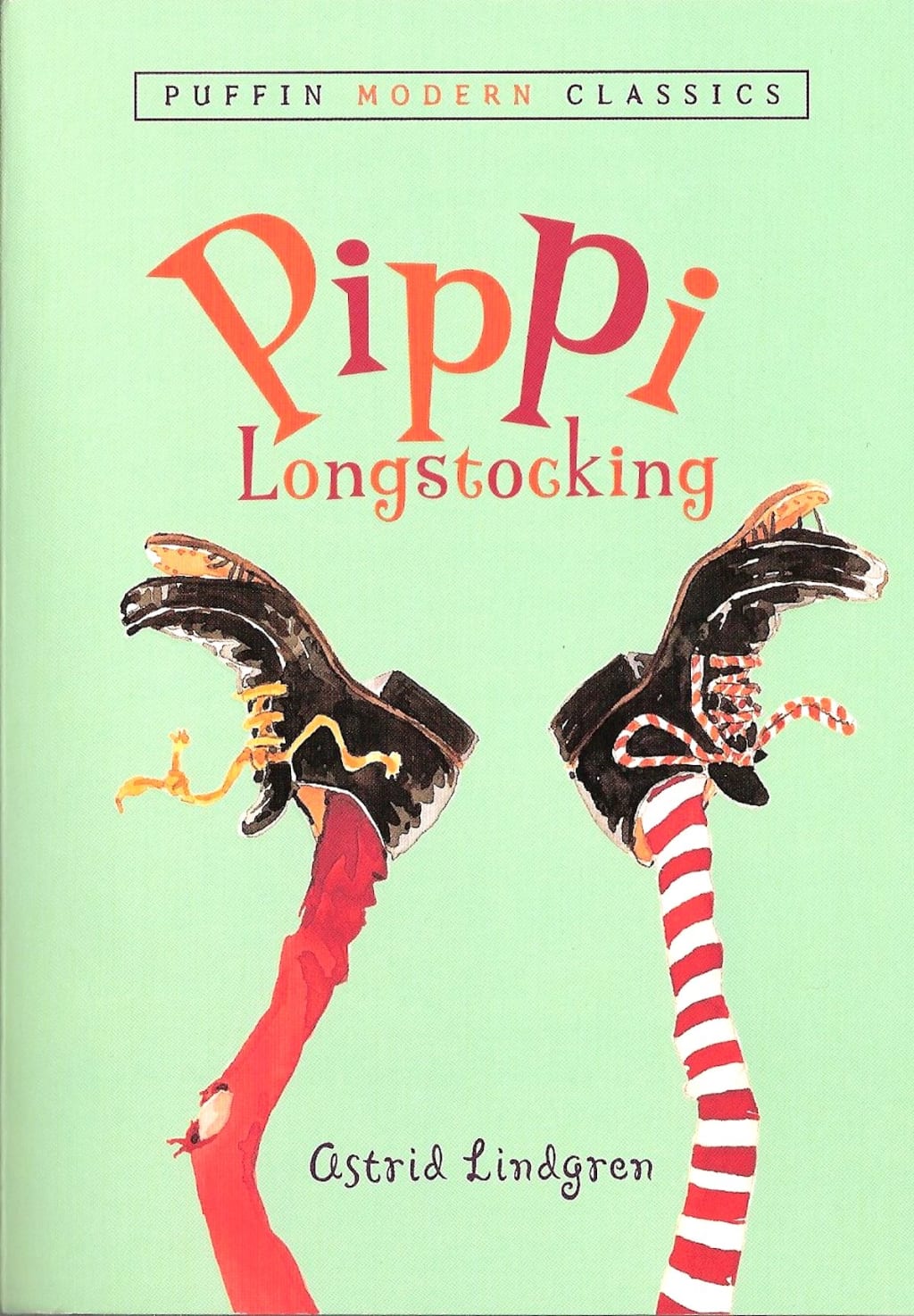
I felt powerless as a little girl, growing up with a mother disabled by strokes. I felt helpless being raised by an alcoholic father. I felt discouraged by atmosphere at school that girls could not achieve as well as boys—nor should they try. I felt frustrated by society in the 1960’s which stressed that girls must always be lady-like, never rambunctious. I felt inadequate by the inference that women must be beautiful in order to be valued. I felt crestfallen by literature and media which never portrayed females as super-heroes...
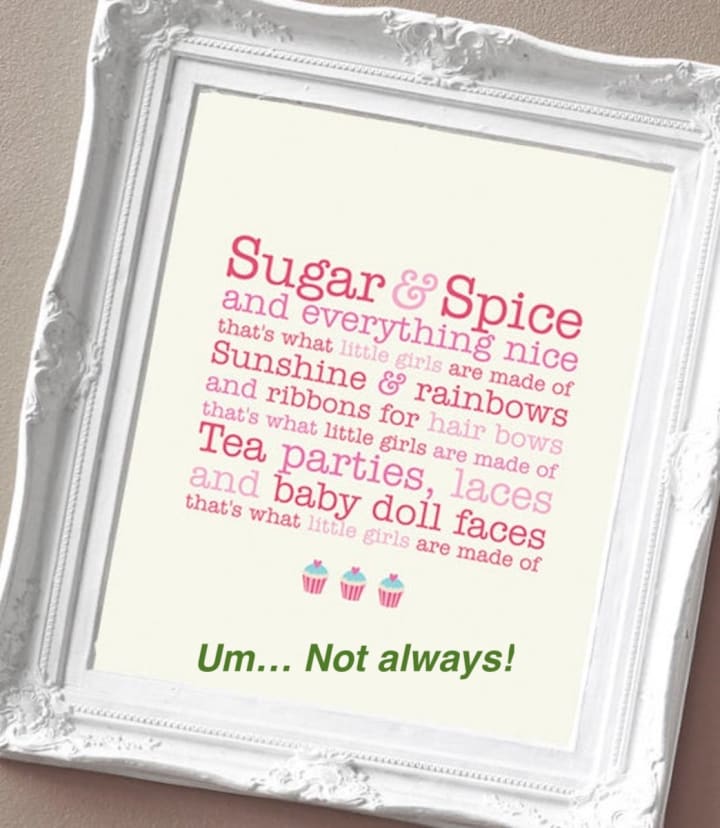
Then one night in the early 60's, my oldest sister read me an old bedtime story from the 40's that empowered me like nothing I had ever heard before! "Pippi Longstocking” is a tale that every little girl (and boy) should still hear today. It may turn their concept of a girl upside down—in a good way; as it did for me.
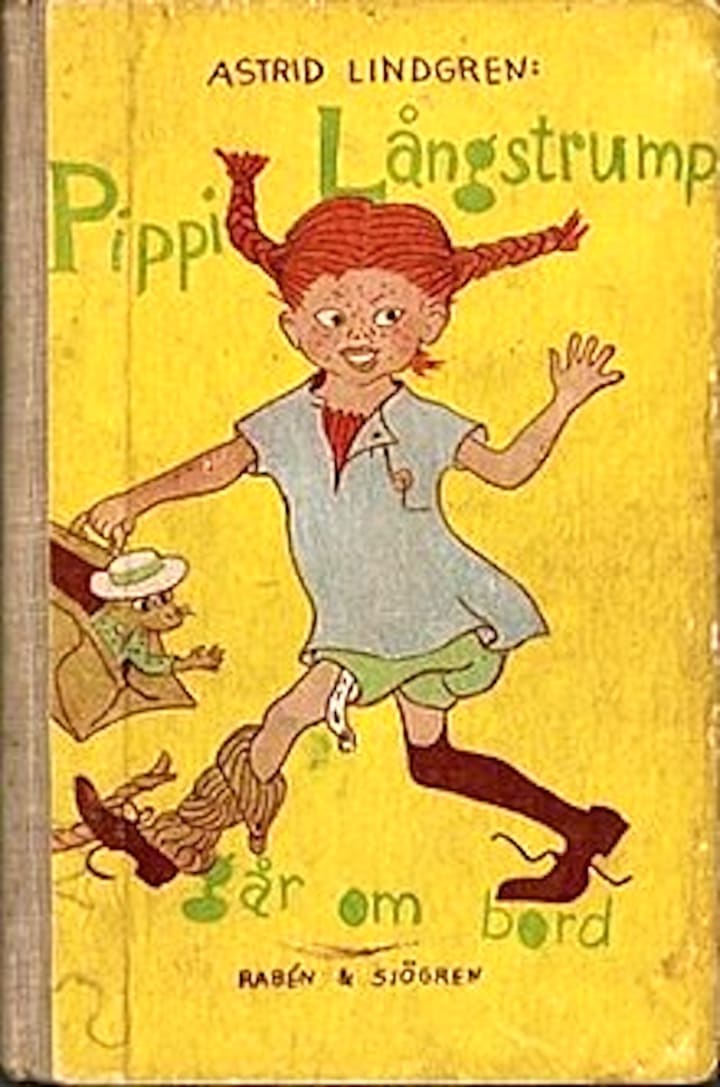
Imagine how big my young eyes widened as night-after-night, my sister made the pages come alive with the continuing saga about a little girl who broke all the barriers that surrounded me, in my 1960’s world… I was astounded, encouraged, and empowered with hope that even little girls could exceed the limits imposed upon females of my day. Of course as a child, I didn’t realize that I was being empowered; I just knew that Pippi Longstocking was a girl refreshingly unlike any female character I had ever before encountered. It was exciting that she dared to be different from the typical “vanilla” female roles I was familiar with… She wasn’t a pretty princess waiting for her prince; or a victim waiting for her Superman or Lone Ranger to rescue her. How refreshing and astonishing it was to me that Pippi Longstocking was the one doing the rescuing—all while setting society straight where they had gone wrong! As I listened to how assertively Pippi did not hold back from speaking her mind when it was called for, it gave 'shy little me' the courage to speak up when I should, as well.
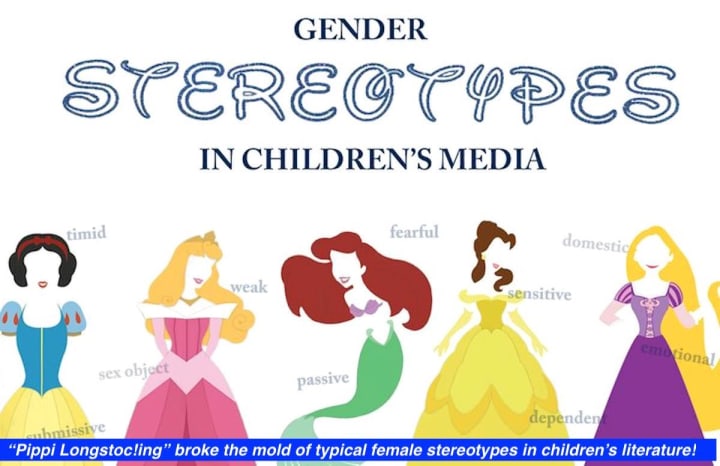
Oh, how I could relate to Pippi Longstocking having parental problems! Her mother had died and her father was missing. When there was nobody to take care of Pippi; even though she was only nine years-old, she took care of herself—just as I often had to do. Suddenly, I felt not so alone! I began to realize that other children with sad lots in life also often have to fend for themselves, all the while longing for loving able-bodied parents to care for them. Somehow, the realization that Pippi's story gave me, helped me to endure. While every child will enjoy having Pippi Longstocking read to them; I feel the story might especially hit a chord with orphans, those in foster homes, or those who have disabled, neglectful, or absent parents. Pippi inspires that you didn’t have to REMAIN down-and-out, just because you had a bad start with your lot in life. Her story inspires such children "to pull themselves up by their bootstraps” and she helps grow their determination to be all that they can be.

Her full name in the book still makes me giggle: “Pippilotta Delicatessa Windowshade Mackrelmint Efraim’s Daughter Longstocking.“ Isn’t it refreshing to have a female character who doesn't place value based on one's appearance? She is a freckle-faced, red-haired girl whose pigtails are always askew with clothes which are always a mish-mash (fashion be damned). How freeing!
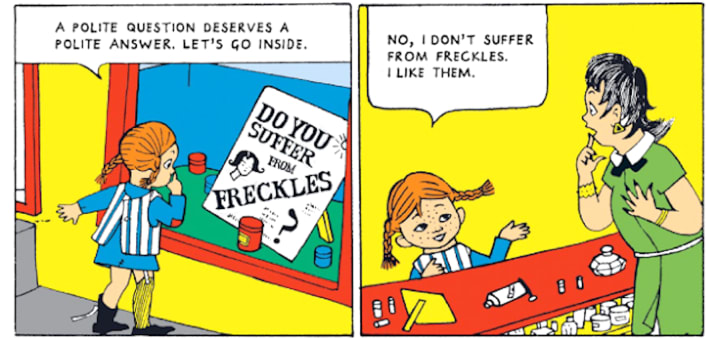
Pippi also helped me to no longer constantly feel like a disappointment when I wasn’t a model child (which was often). It was a lightbulb moment when Pippi Longstocking made me realize for the very first time, that it is okay to be a free-spirit! It’s okay to color outside the lines… It’s okay not to fit the “mold”.
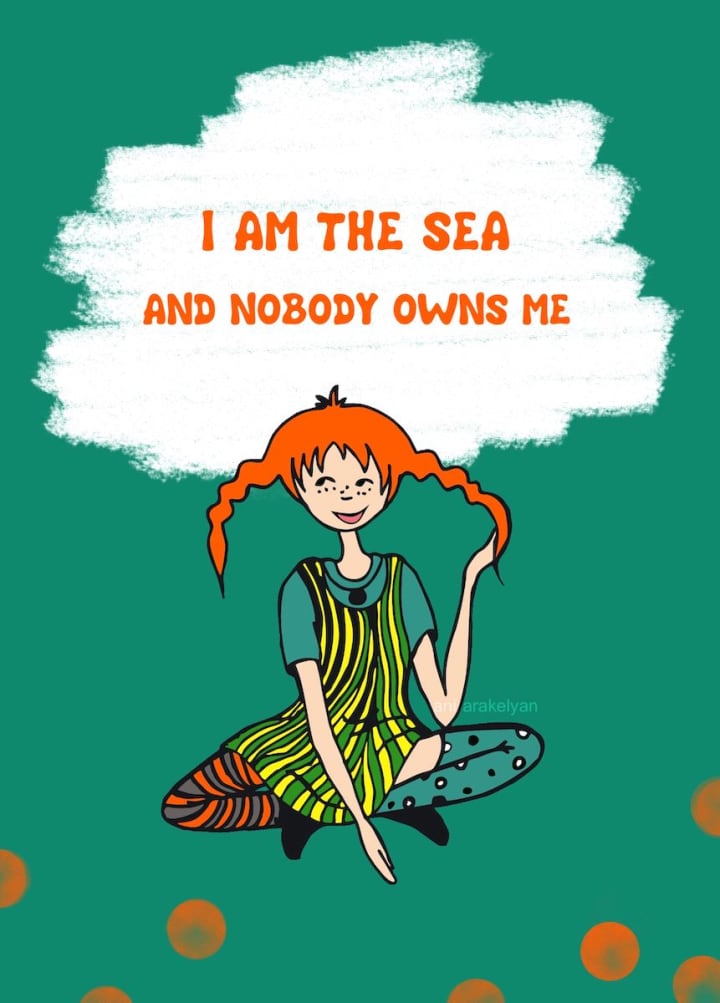
“Pippi Longstocking” was put down in writing in 1944-1945 by a Swedish female author: Astrid Lindgren. How the story originally came about is an interesting tale in itself... Back in 1941, Astrid’s nine year-old daughter, Karin, was ill and restricted to her sick-bed for most of the year. To give her little girl a break from the boredom, Astrid would spin entertaining tales. In her own words, her (long-grown) daughter, Karin, recalls:
"I was bored, and kept begging my mother to tell me stories. One evening she said, exhausted: 'But what more can I tell you?' An answer came bursting forth, in an attempt to keep her by me: 'Tell me about Pippi Longstocking!' It was a name out of the blue, only a child’s play on words. But it did the trick. She started to tell me a completely new story."
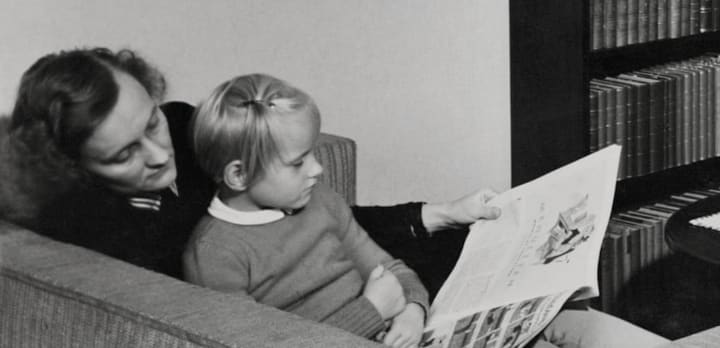
To capture and hold her sick child’s attention in order to help her pass the grueling time, Astrid made up fabulous accounts based on that name her daughter had blurted out. The tales were of another nine year-old girl who was so brave and strong—just as her daughter needed to be so brave and strong, to recover. Although little Karin couldn’t play that year, it was her mother’s hope that she would live vicariously though Pippi’s fantastic adventures. Likewise, many perfectly healthy children who hear the tale of "Pippi Longstocking" are also able to be whisked away in their imaginations, to revel in her adventures. (NOTE: Astrid Lindgren, herself, also had a challenging life; I encourage you to read her biography someday.)
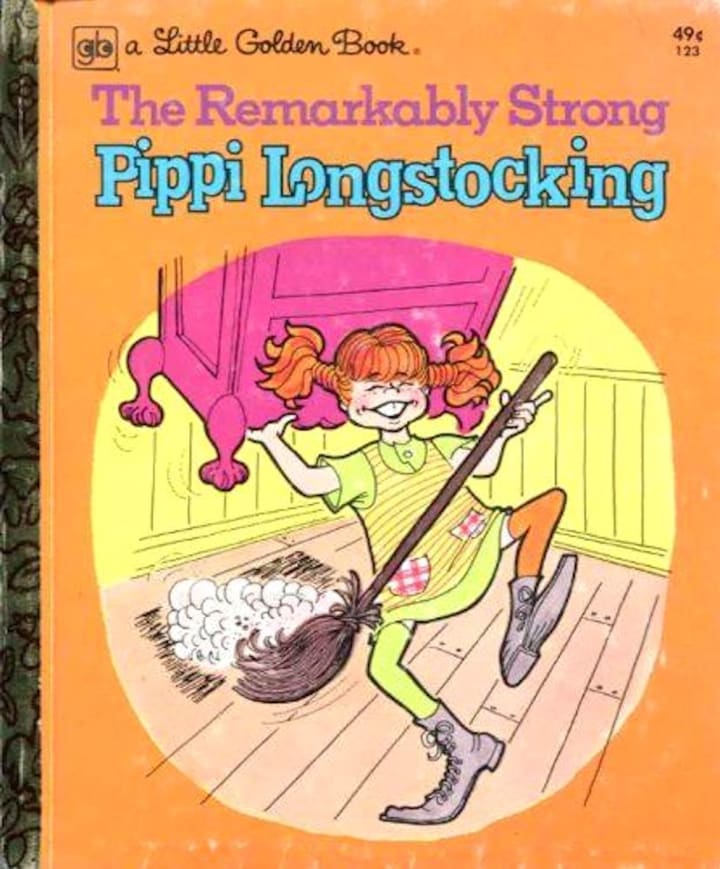
Astrid Lindgren wrote more, but here are the names of the books which my sister read to me during her, ongoing bedtime stories; moments which were beloved by me: 1) “Pippi Longstocking”, 2) “Pippi Goes On Board”, and 3) “Pippi in the South Sea”. (In modern days, several movies have been made about Pippi Longstocking, but in my opinion, they just don’t measure up to what is pictured in your imagination, by reading the books.)
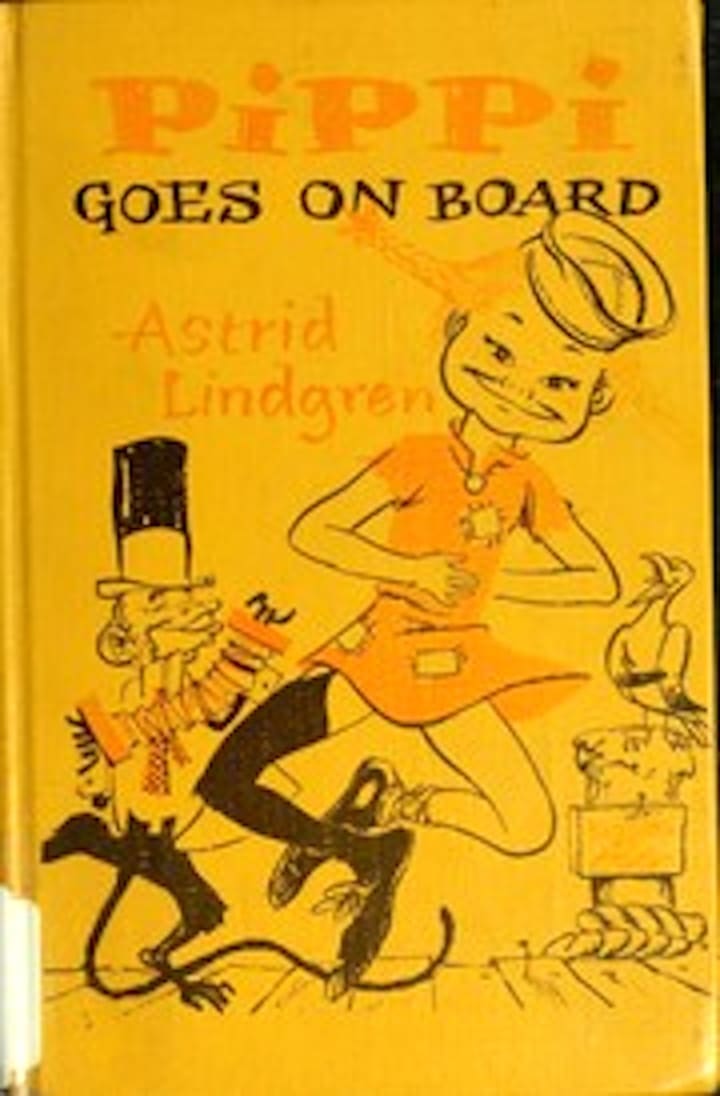
I always wished I had a pet monkey when I was a child; so how thrilled I was when my sister related how Pippi has a pet monkey called “Mr. Nilsson”. And what little girl doesn’t want a pony? Well, Pippi Longstocking also has a horse called “Old Man”. Her animals live on her porch in a house which seemed magical to me… In some lands, homes are given names, and Pippi’s home is called: “Villa Villekulle” which (when loosely translated) means "House of the Girl” or "The Girl's House".
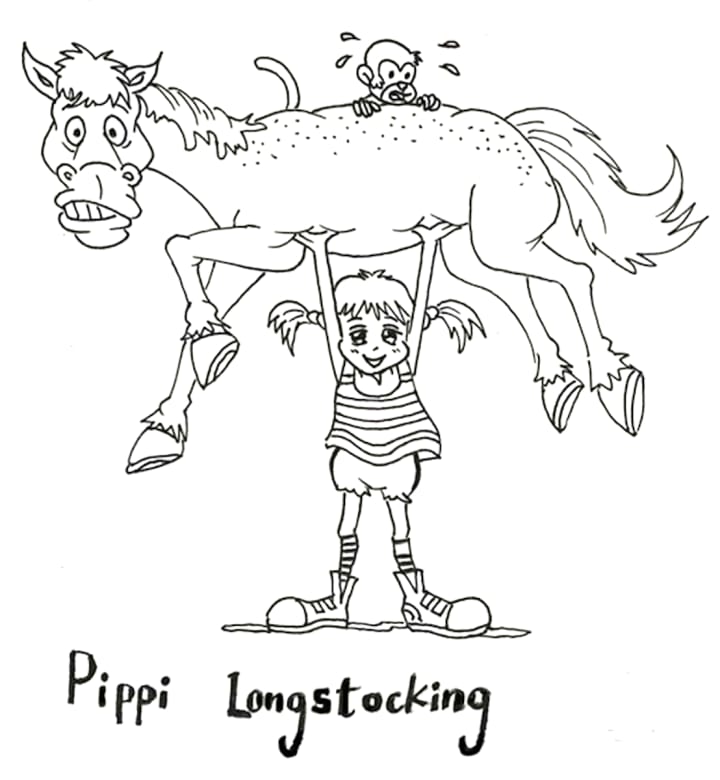
Pippi only expresses anger for very good reason; and often that reason is when someone dares to mistreat an animal. This bedtime story helps children to realize that we need to come to the defense of any mistreated animal—or person, for that matter. Pippi always fights for the underdog or anybody who is down-and-out or mistreated.
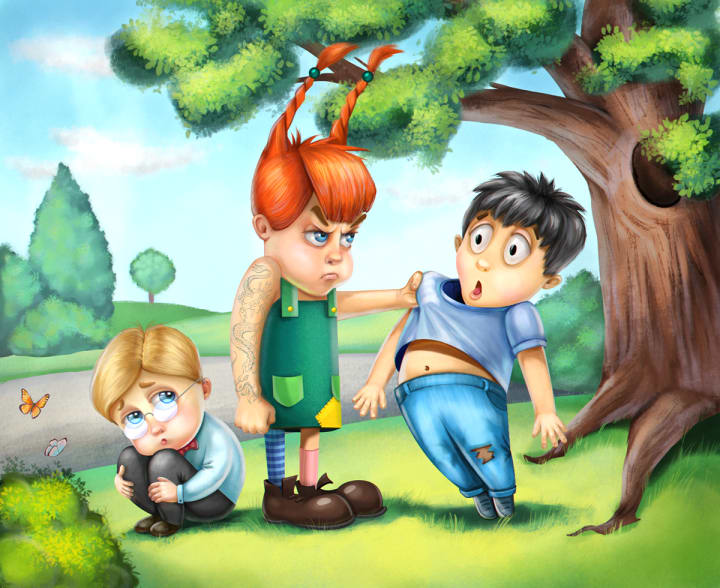
Friends are very important to children, and friendships are especially valued by Pippi Longstocking, too. I could more often relate to her neighbor kids: Annika and Tommy. I recall musing: “Wouldn’t it be great to have a fun neighbor like Pippi Longstocking, like Annika and Tommy do?” I really wished I could be Annika. Pippi is the most loyal (and fun) friend any child could want! Sure, some of the details are far-fetched—like having a chest full of gold whenever they needed money to buy something... But, isn’t it fun for a children to dream of having a treasure?
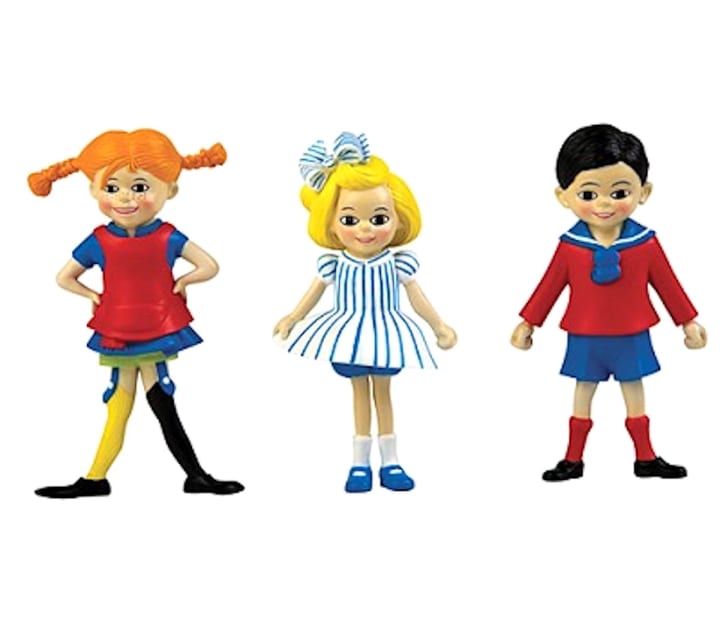
The year 2020 marked 75 years since “Pippi Longstocking” was first published. Since then, charities in honor of Pippi Longstocking have helped many girls and others through a global campaign called: “Pippi of Today”; launched by the “Astrid Lindgren Company” and “Save the Children”. All of the organizations that have been assisted by "Pippi of Today", focus on helping others—especially creating a culture of respect between boys and girls. Here are some examples of where funding goes:
1) Supporting well-being of girls in Refugee Camps in Jordan;
2) Supporting child-protection and life chances of girls in Tanzania;
3) Ensuring girls can go to school in the Ukraine;
4) Giving 900+ girls safety and psychosocial support during migration in the Balkans; and
5) Providing a safe environment where girls can develop friendships during migration.
You may have noticed that all of these efforts are aimed at helping girls on the move. You see, just as Pippi Longstocking was often on the move in search of her long-lost father, likewise these charities that “Pippi of Today” helps fund are focused on girls on the move, caught up in migration, due to dire circumstances beyond their control. I feel with these commendable efforts to help girls, “Pippi Longstocking” has raised the bar above-and-beyond your typical bedtime story.

However, there have always been people who objected to having such a strong girl character, sadly. The “Pippi Longstocking” books have always had to fight for acceptance by society. France is just one of several countries that had publishers who edited the story to change Pippi into (in the words of the French publisher: 'Hachette’), “a fine young lady”, instead of “a maladjusted child”. They also didn’t seem to like that a little girl had super-powers making her strong enough to lift a horse, and with a voice that could be loud enough to tumble trees—calling such super-strength in a girl: “unrealistic”. [Never-mind that they had no problem accepting “unrealistic” male characters (from other literature) having super-strength.]
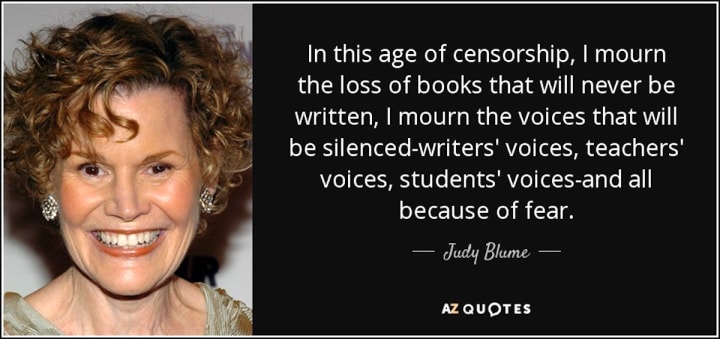
I regret to inform you that in our modern-day politically-correct era, there have been accusations of racism in a bit of the wording from “Pippi in the South Sea”, which has started a renewed round of censorship. The author’s daughter, Karin (long grown), emphatically objects, explaining about Pippi:
"She is not a racist. She is the opposite!”
She explains that the accusers have taken the passages out-of-context, and if they’d only read the surrounding paragraphs, they’d discover that Pippi makes a very strong point of the children being all alike, black and white… (However, there is one account where Pippi does mock white children for their obsession with school.)
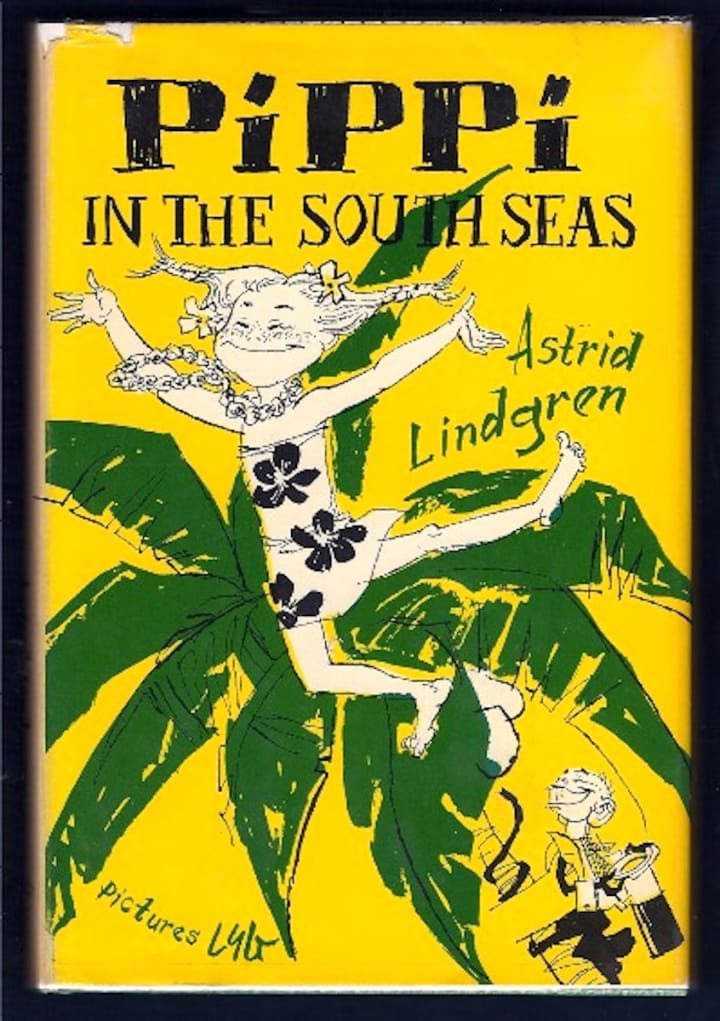
I sure hope parents won’t shelter their children from "Pippi Longstocking”, causing their children to miss out on her wonderful saga! (I personally feel "Pippi Longstocking" has fallen victim to the same sad fate as has “The Adventures of Huckleberry Finn” which is actually the account of a young boy who has been raised in an age and place of rampant racism—who realizes it is ugly and wrong. Don't the censors realize Huckleberry ultimately takes a stand against it? But, because the coarse common language of that era used in the wording has been the focus, it has prevented many from reading the entire book—thus they miss the anti-racist message entirely, sadly.)
Censorship is so dangerous… a slippery slope for our society to slide down. Do we really want to give our next generation blinders? Don’t they need to learn not to go along with everything they read? A parents’ good intentions can be harmful, when it comes to censorship... What a mistake not to let little girls (and boys) be empowered by the tales of "Pippi Longstocking”. If we insist on “perfection”, we will miss out on some true treasures in literature! That would be so very tragic.

Another thing that worries me even more, is the awful trend today of no longer reading children bedtime stories… Not only did I enjoy when my sister read bedtime stories to me as a child, it also is one of my most-treasured memories of raising my own two children. How precious are those cuddle-up times as I watched imaginations soar when I read to them: "Mary Poppins", watched the wonder as I read: “The Indian in the Cupboard” and shared a tear when the spider died during "Charlotte’s Web”. Of course, it took me back to my own childhood days when I saw their eyes widen so big during “Pippi Longstocking”, just as mine did, so long ago. I’ve never felt closer to my children as I did during bedtime stories… Now, I am experiencing the same precious joy with my grandchildren—and I hope to live long enough to read bedtime stories to my great-grandchildren someday (God willing). It is one of the greatest pleasures of parenthood, it truly is. Plus, it helps your child learn to read and develop a love for reading—something that watching a TV movie cannot do. Reading a story to your child before bedtime helps them sleep better, too. Bedtime stories are a precious, but fleeting gift between parent and child. Don't miss out!
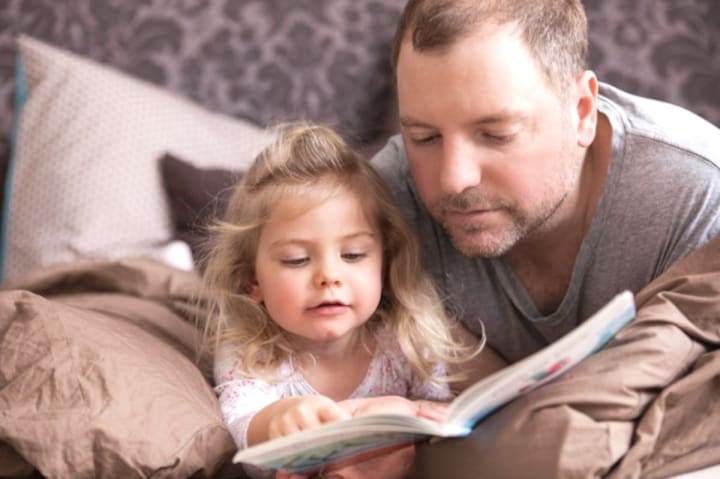
I love my big sister so much for reading me bedtime stories all those years ago—and the pleasant escape they gave me. I needed those cuddle-up occasions so much—as do so many other children, even those in ideal home situations. Today, I hope my children and grandchildren will forever have fond memories of the bedtime stories I have read to them.
If you have never read a bedtime story to your child, I hope this will encourage you to not delay in doing so. When you do, don’t forget to include the empowering, ongoing bedtime story of "Pippi Longstocking”.
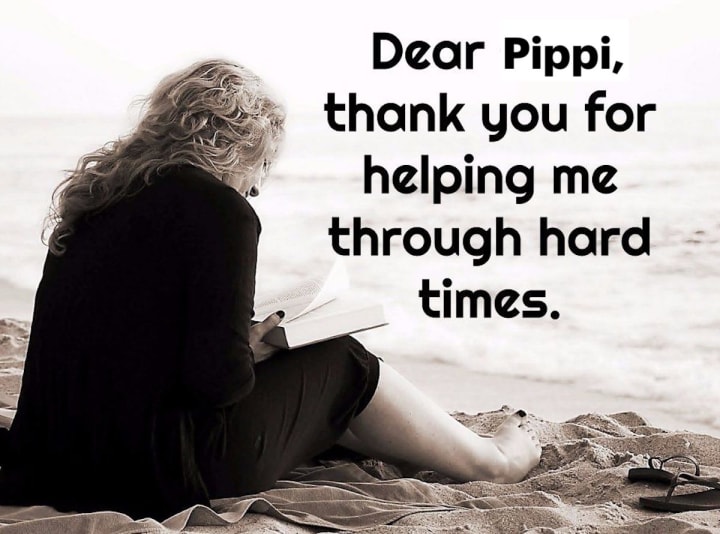
About the Creator
Karla Bowen Herman
I've always wanted to be an author, ever since I was a little girl. Time has a way of flying by when you're raising a family. But, I've discovered you're never too old to start! May something I write someday, lift someone's heart.






Comments
There are no comments for this story
Be the first to respond and start the conversation.